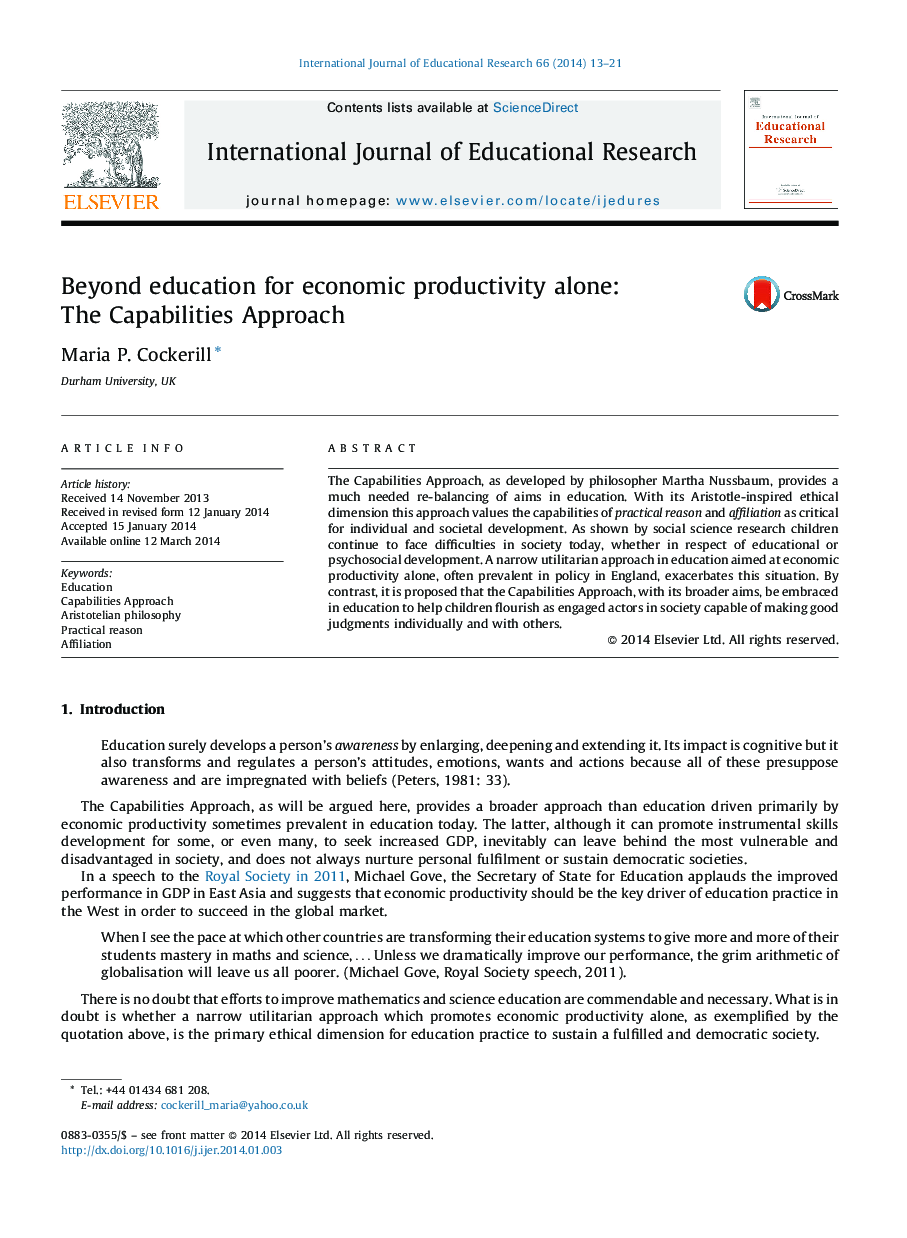| Article ID | Journal | Published Year | Pages | File Type |
|---|---|---|---|---|
| 356945 | International Journal of Educational Research | 2014 | 9 Pages |
•Children's education and psychosocial development require improvement.•Policy often leads to narrow curricula, mechanistic practice or restrictive evaluation.•Education driven by the extrinsic aim of economic productivity requires scrutiny.•Aristotle-inspired Capabilities Approach provides needed intrinsic aim in education.•Key capabilities for development comprise practical reason and affiliation.
The Capabilities Approach, as developed by philosopher Martha Nussbaum, provides a much needed re-balancing of aims in education. With its Aristotle-inspired ethical dimension this approach values the capabilities of practical reason and affiliation as critical for individual and societal development. As shown by social science research children continue to face difficulties in society today, whether in respect of educational or psychosocial development. A narrow utilitarian approach in education aimed at economic productivity alone, often prevalent in policy in England, exacerbates this situation. By contrast, it is proposed that the Capabilities Approach, with its broader aims, be embraced in education to help children flourish as engaged actors in society capable of making good judgments individually and with others.
